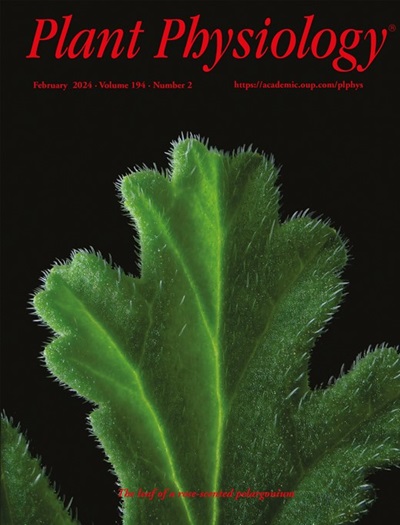通过对柳枝稷多因子的研究优化复杂性状的基因组预测
IF 6.5
1区 生物学
Q1 PLANT SCIENCES
引用次数: 0
摘要
基因组预测加速了育种过程,并为复杂性状的遗传基础提供了机制见解。为了进一步优化基因组预测,我们评估了基因组组合、基因分型方法、变异类型、等位基因复杂性、多倍体水平和群体结构对柳枝稷(Panicum virgatum L.) 20个复杂性状预测的影响。柳枝稷是一种多年生生物燃料原料。令人惊讶的是,基于短读基的基因组组装与基于长读基的组装相当甚至更好。由于较高的基因覆盖率,外显子组捕获和多等位基因变异分别优于测序基因分型和双等位基因变异。对于大多数性状,四倍体模型的预测精度高于八倍体模型,这可能是由于四倍体之间的遗传距离较大。根据所讨论的性状,需要整合不同类型的变异以进行最佳预测。我们的研究提供了影响基因组预测结果的因素,指导了未来研究的最佳实践,并通过选择性育种改善柳枝稷和其他物种的农艺性状。本文章由计算机程序翻译,如有差异,请以英文原文为准。
Optimizing genomic prediction for complex traits via investigating multiple factors in switchgrass
Genomic prediction has accelerated breeding processes and provided mechanistic insights into the genetic bases of complex traits. To further optimize genomic prediction, we assess the impact of genome assemblies, genotyping approaches, variant types, allelic complexities, polyploidy levels, and population structures on the prediction of 20 complex traits in switchgrass (Panicum virgatum L.), a perennial biofuel feedstock. Surprisingly, short read-based genome assembly performs comparably to or even better than long read-based assembly. Due to higher gene coverage, exome capture and multi-allelic variants outperform genotyping-by-sequencing and bi-allelic variants, respectively. Tetraploid models show higher prediction accuracy than octoploid models for most traits, likely due to the greater genetic distances among tetraploids. Depending on the trait in question, different types of variants need to be integrated for optimal predictions. Our study provides insights into the factors influencing genomic prediction outcomes, guiding best practices for future studies and for improving agronomic traits in switchgrass and other species through selective breeding.
求助全文
通过发布文献求助,成功后即可免费获取论文全文。
去求助
来源期刊

Plant Physiology
生物-植物科学
CiteScore
12.20
自引率
5.40%
发文量
535
审稿时长
2.3 months
期刊介绍:
Plant Physiology® is a distinguished and highly respected journal with a rich history dating back to its establishment in 1926. It stands as a leading international publication in the field of plant biology, covering a comprehensive range of topics from the molecular and structural aspects of plant life to systems biology and ecophysiology. Recognized as the most highly cited journal in plant sciences, Plant Physiology® is a testament to its commitment to excellence and the dissemination of groundbreaking research.
As the official publication of the American Society of Plant Biologists, Plant Physiology® upholds rigorous peer-review standards, ensuring that the scientific community receives the highest quality research. The journal releases 12 issues annually, providing a steady stream of new findings and insights to its readership.
 求助内容:
求助内容: 应助结果提醒方式:
应助结果提醒方式:


